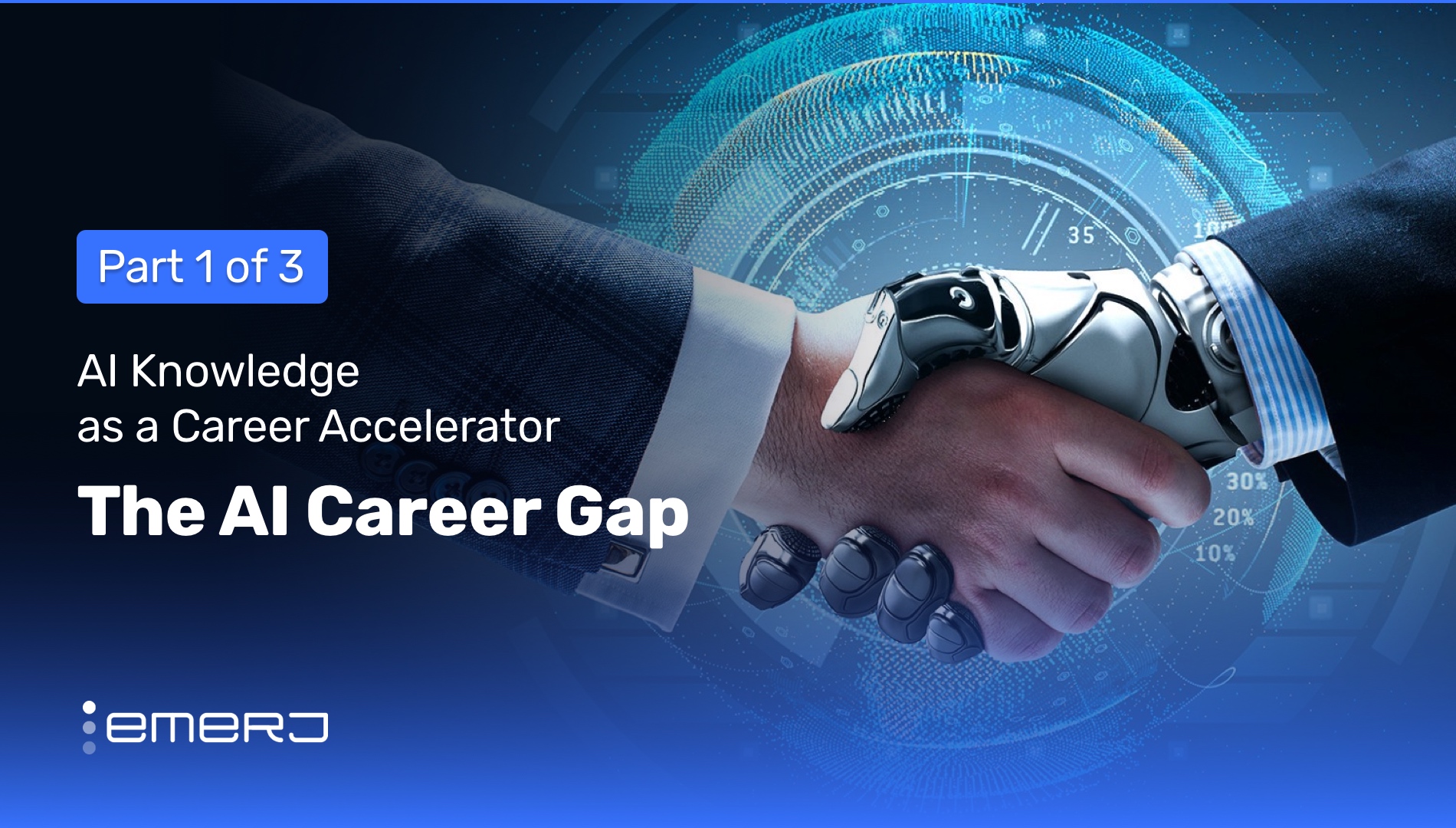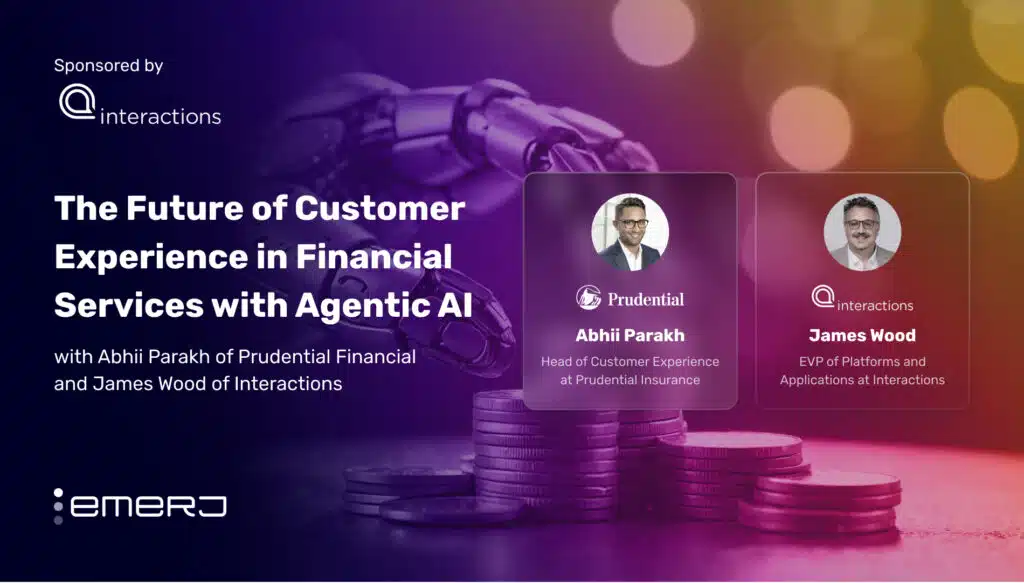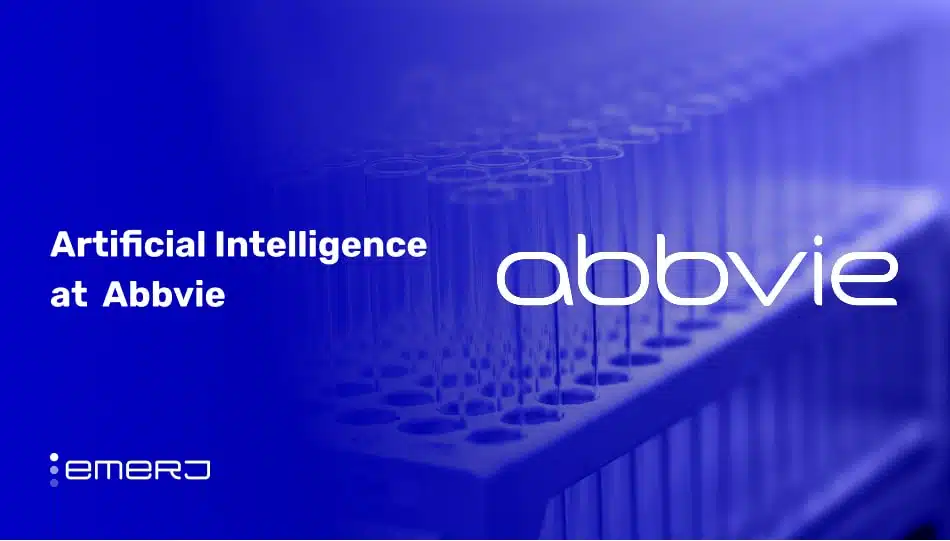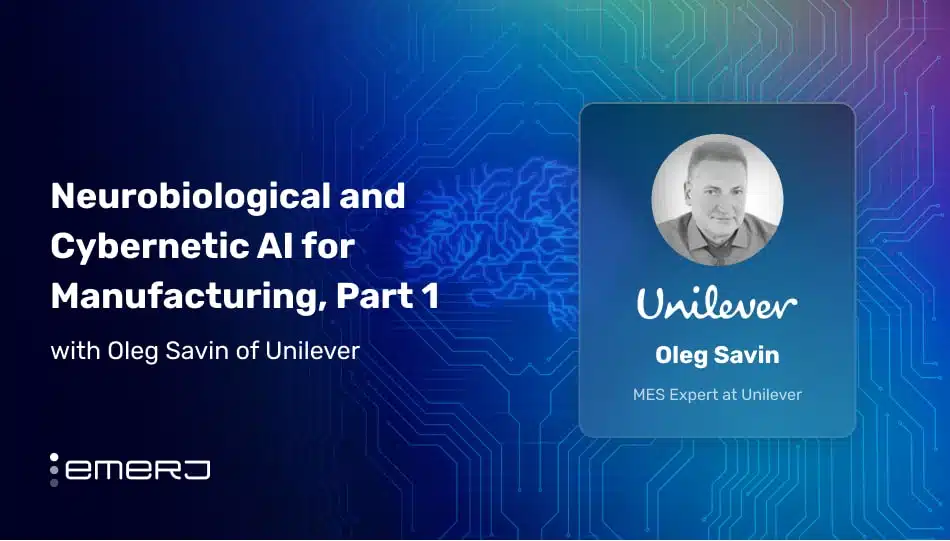Last month we ran a podcast series on the AI in Industry podcast on the theme of “Advancing Your Career in the Era of AI”, with a focus on how non-technical professionals can become more valuable in the market, and can become involved in AI projects and initiatives, without ever learning to code.
I received twice as much feedback on this series as any other series we’ve ever run on the podcast – which surprised me.
It surprised me because I think about everything on Emerj.com as being useful for nontechnical professionals. We’ve built our editorial calendar and our products around the needs of nontechnical professionals who want to make the most of their careers, but this recent series spoke to that topic directly.
But hitting directly on the theme of “Advancing Your Career in the Era of AI” clearly hit a cord.
For that reason, I’ve decided to release a three-part video and article series on that same topic, breaking down the lessons that were most important for me – and sharing a bit of my own story going from small-town martial arts instructor to international AI speaker and strategist.
Before getting into the small-town martial arts instructor part, I’d like the share a pivotal Silicon Valley conversation that changed the course of my career:
“The Real Opportunity Goes to Those Who can Use Them”
It was 2015-ish, and I was in the AI building of one of the Silicon Valley tech giants (I won’t name names, but it’s one of the companies whose product you likely use daily), conducting a podcast interview for AI in Industry.
The building we were in was filled with literally hundreds of machine learning engineers – probably all getting paid between $150,000 and $500,000 per year. Before sitting down for the interview, I turned to the person I was interviewing and said something like:
“Wow, being a machine learning engineer isn’t a bad career path these days.”
My interviewee at the company turned to me and said something I’ll never forget:
“They are extremely sharp, but the real opportunity goes to those who can use them.”
I’m roughly paraphrasing the reply, I don’t remember it word-for-word, but I remember the general point – and I remember that response making an impression on me.
I want to be clear, my interviewee (a leader of this company’s AI efforts) wasn’t downplaying the importance of AI technical and coding skills – he was very technically capable himself. What he was saying, is that there is great value in directing strategic AI efforts – in achieving business outcomes – in knowing how and where to use technical AI talent.
That made an impression on me.
At the time, I was still running my eCommerce business, and Emerj was simply a personal project – not yet the company it is today – with no market research services offered.
I had been pretty well convinced that if I wanted to offer value to enterprises, I would need to learn to code, and at the time I was learning some basic Python on YouTube, and going to occasional MeetUps in the Mountain View, CA area.
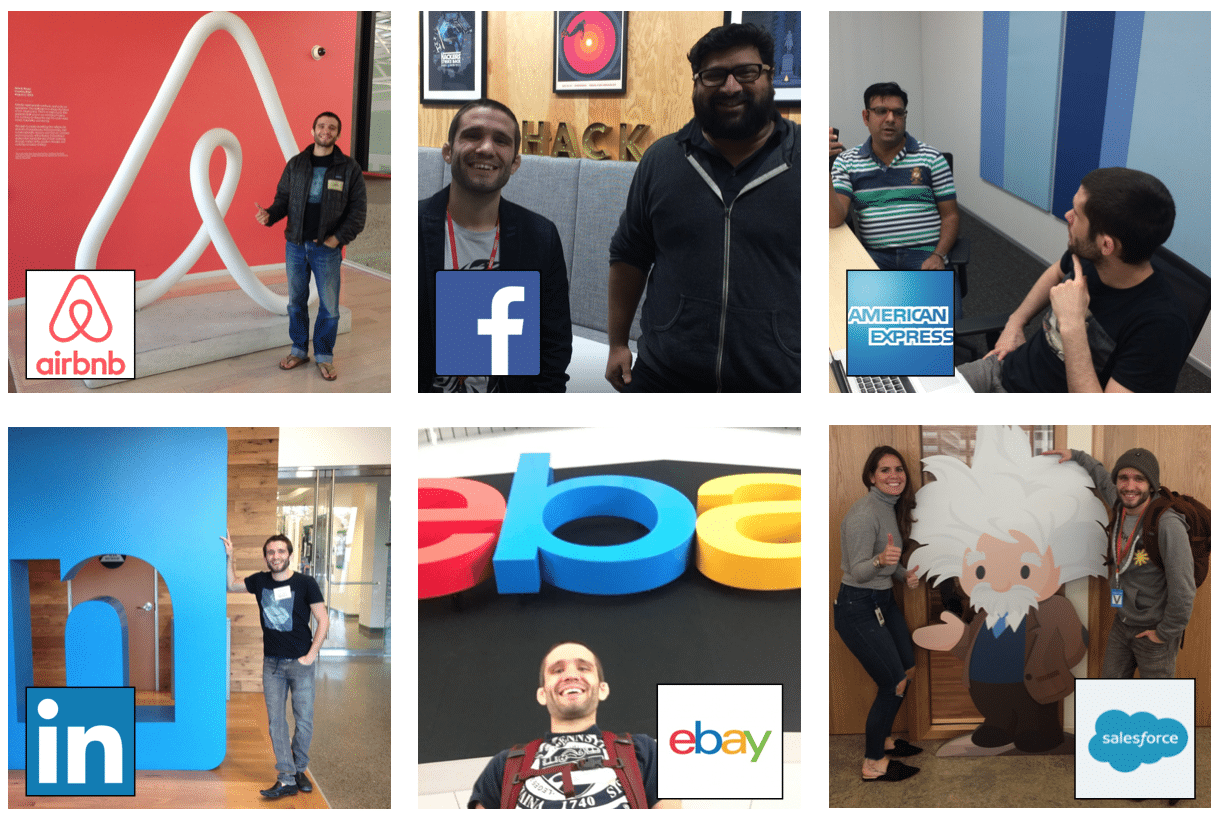
Fast forward four years, and I’m being invited to speak about AI trends at United Nations headquarters, and my company is being called upon to help with AI strategy and AI adoption by multi-billion dollar enterprises. Looking back I’m glad I didn’t try to turn myself into a developer, and I focused on the strategic and conceptual side of AI – staying a “business person” a heart, and learning enough about AI to talk with data scientists, but not trying to become one.
The statement “the real opportunity does to those who can use them” makes more sense now than ever.
I would have been – at best – a mediocre developer, probably trying to find work at a reasonably exciting company somewhere in the valley.
Five years from now, my story won’t actually seem that unique. Many nontechnical professionals will “ride the wave” of AI transformation, and become leaders and contributors to AI projects and initiatives – while other professionals will be left to run legacy systems. Some professionals will become more valuable in the marketplace because of their AI experience and skills, while others will become less valuable in the marketplace.
That’s what the first article in this three-part series is about. I refer to this as the AI Career Gap.
The AI Career Gap
I’d like to make an analogy between business that get left behind in AI disruption, and careers that get lost in AI disruption.
A company gains an edge in their long-term AI advantage rarely does so with a single AI application (one fraud model, one chatbot application, one process automation use-case, etc). Instead, companies will gain their market advantage by building on the foundational capabilities that will enable them to use AI into the future. This foundation includes: data infrastructure, team collaboration, a culture of iteration and experimentation, and more.
In our AI Business Strategy work, we help companies improve their long-term advantage by focusing on the three Critical Capabilities: Skills, Resources, and Culture (each of which has three to five sub-categories).
The companies who build these capacities early on (even if their early AI applications don’t have a sky-high financial ROI) will have a massive edge over the firms who have none of it, and will pull ahead of laggard firms more and more as AI becomes a part of every enterprise sector.
What many people overlook is that the same kind of “learning advantage” is granted to professionals in their career.
The image below illustrates what I refer to as the AI Career Gap:
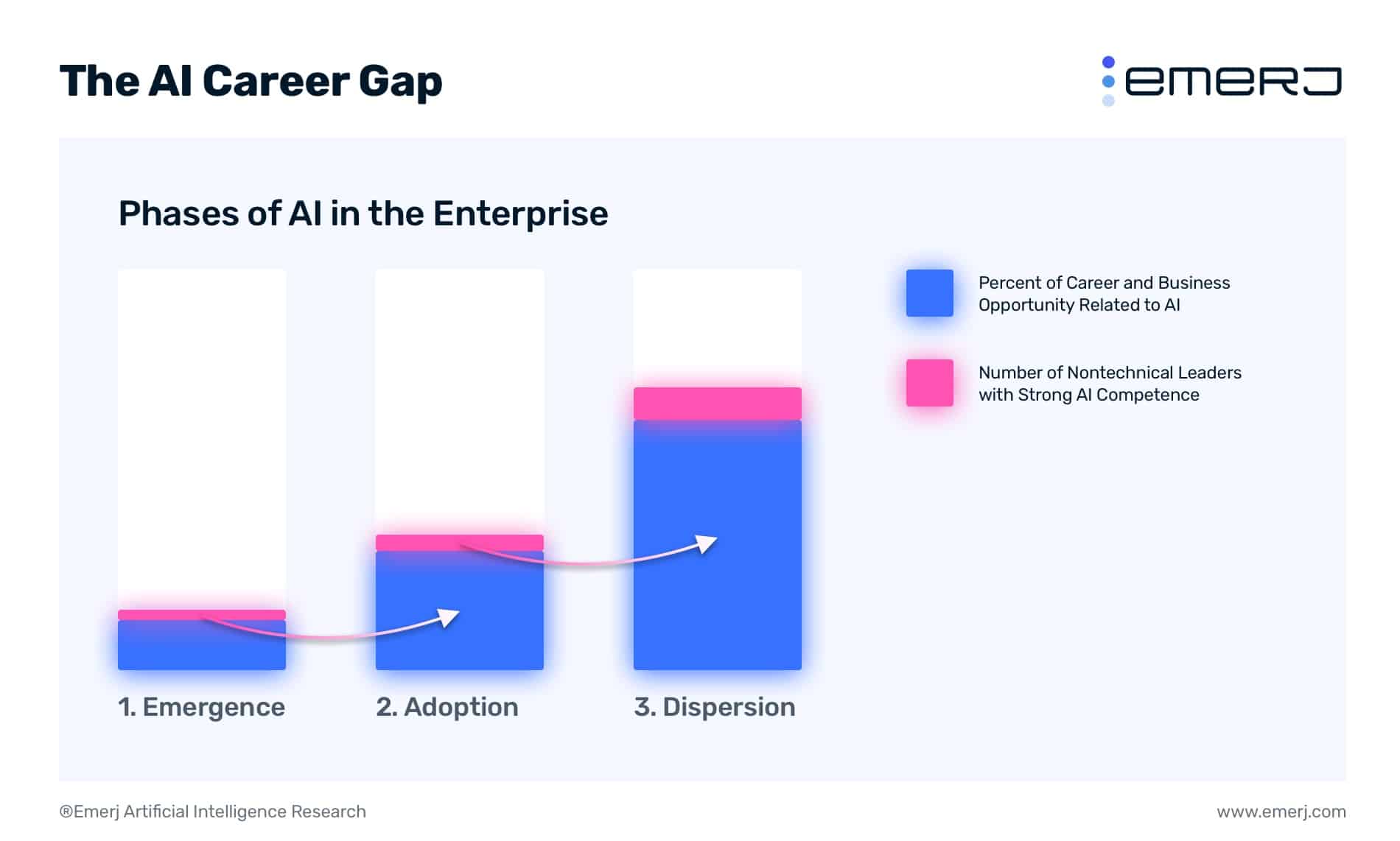
As AI progresses over the coming 2-3 years (read my article on the AI Zeitgeist: Phases of AI in the Enterprise), there AI-related career and business opportunity will expand, and will be granted to a relatively small group of professionals with requisite AI knowledge. Even more than they hunger for data scientists, enterprises may hunger for nontechnical professionals who understand how to apply AI.
Here’s how the process breaks down.
- A professional who learns the fundamentals of AI knowledge (what AI does, it’s basic use-cases, what it takes to use it productively) will be most likely to be involved in early AI projects or strategy conversations at his or her company.
- A professional with experience strategizing about AI, or helping with initial AI projects, is likely to be involved in future strategy projects and other AI projects.
- These professionals who take an early interest and knowledge in AI will be in a position to lead the most exciting, enviable opportunities within their firm as AI becomes more and more critical.
At Emerj, we refer to this important AI-related knowledge for nontechnical professionals as “Critical Context.” In this article I’ll be exploring what “Critical Context” is, and how professionals can wield it to their advantage
It’s clear that professionals who are getting the right critical insights about AI today are already gaining a tremendous edge in terms of career opportunity, we hear it every day from our subscribers:
- A product manager who has been on our Emerj newsletter for over a year becomes an in-house “AI strategist” at a multi-billion dollar company because he understands AI use-cases and adoption better than anyone in the C-suite – and his new position is not only more fun, but pays more.
- An unemployed marketing professional listens to our podcast for months and is able to land a job at a hot AI startup because she “gets it”, can speak their language, and understands their use-case and value.
- A strategy consulting firm with no real background in AI consulting learns from our Executive Guide articles and is able to work with multi-billion dollar companies and help them with AI adoption – developing what will become lucrative and exciting partnerships in AI transformation.
I hear stories like this regularly from our audience – and it’s certainly something that makes us proud. In addition to out continued research work with enterprise clients – we’re aiming to do more to directly serve nontechnical professionals who want to get a career edge, and this article is part of that new focus.
The release of our upcoming Getting Started with AI report is intended to directly serve Critical Context needs for nontechnical professionals. Before I get more into the report, or the categories of Critical Context, I want to give you an example of one very nontechnical person who found a career advantage in learning about AI.
That person is me.
My Story – Martial Arts Teacher to AI Strategist
When I’m at speaking engagements I’m often asked about my background, and there’s usually an assumption that I studies computer science at a good school, and/or that I worked in AI at a tech giant before spinning out to start my own company.
Nothing could be further from the truth.
I probably have the least likely resume to become an AI strategy and research expert. Let me know if this sounds like the background of someone who helps develop AI strategies for enterprise clients:
- No experience in computer science, and no ability to code
- No enterprise experience, no work experience in large companies
- No previous consulting experience
- No AI “certificate” programs
Not exactly a golden resume.
Back in 2012, when I first bought the website for Emerj, and started blogging about artificial intelligence – what was my profession?
I was a martial arts teacher.
Brazilian Jiu Jitsu, to be more precise.
It’s true. When I first got the idea for what is now Emerj, I was running a martial arts academy in the 4,000-person town of Wakefield, Rhode Island. Here’s a picture of me around 2012:

Here’s a Brazilian Jiu Jitsu competition highlight video from 2012. This is how I used to spend my weekends:
That’s what I was doing full-time when I first came up with the idea for what is now Emerj. Not exactly great preparation for a life of corporate AI strategy and advisory.
I paid my way through graduate school at the University of Pennsylvania (where I studies skill acquisition and cognitive science under Dr. Martin Seligman’s Positive Psychology program) by teaching martial arts.
It was during graduate school (around 2011) when I was introduced to artificial intelligence, as some UPENN labs were beginning to apply natural language processing to Twitter data, and I found the work fascinating. In reading more about machine learning – and it’s long-term implications (from Oxford’s Nick Bostrom and others), I became convinced that I should devote my professional career entirely to sharing the applications and implications of AI in the real world.
But how could I do such a thing with no corporate experience, no technical experience, no coding ability, and no experience in consulting?
Long story short, I learned as much as I could in all directions – and juggled that AI learning on top of my day-to-day work as a martial arts teacher, and I eventually sold my martial arts gym and taught self defense online (via my eCommerce company) in order to learn more about AI. Keeping up with AI learning was challenging for two reasons:
- First, I was working 70-80 hours per week to get my eCommerce business off the ground, and barely had any time to learn about AI and discover the AI insights I needed to be useful to business clients.
- Second, I didn’t know what specific AI skills or knowledge would make me most valuable in the business world, I was totally guessing, and I focused on a lot of subject-matter areas that weren’t ultimately very valuable.
Working (very) part-time on researching AI topics, I gradually and slowly learned the skills that would further my career. Not coding – but strategy, AI adoption insights, and AI use-cases. These same skills and knowledge are what allow me to work with multibillion dollar companies as an AI strategist and advisory, to present my AI research at United Nations headquarters, and take my career to places I couldn’t have imagined years ago.

The difference between then and now is huge, and it’s something I could hardly have ever foreseen as I first started off in my journey of learning about AI. I’m grateful for the lessons I learned, and for the knowledge that I gained (albeit through too much trial and error) to put me in a position to be in demand with some of the largest and most reputable organizations in the world.
Instead of having my readers go through the same lengthy process that I had to struggle through to learn the critical AI skills for my career, I wanted to condense the learning time down by 100-fold.
My aim is to boil down what I wish I knew early, and what I know would help my subscribers even faster — which is why I put this three-part article series together.
Three Critical AI Knowledge Areas
I spent years trying to learn about AI in order to find a place where I could contribute and be of value for enterprise AI efforts. During those years, I spent a lot of time researching on the web (there was much less information about AI in business back in 2012!), interviewing experts, and trying to determine where my nontechnical skills might find a fit.
When I look back, I could have been probably twenty times for effective with my efforts – I wish I had focused just on the three core areas that really matter for nontechnical AI experts – instead of flirting with coding and focusing on many areas of AI expertise that weren’t really of value.
If I think about why companies hire Emerj for their AI projects, and what kinds of knowledge people really pay me for (to speak at their events, to be involved in their AI product development projects, to help construct AI strategies or map the AI landscape in the sector), it breaks down to these three areas:
Conceptual Understanding of AI
How AI “Works”
A business person should have an understanding of what artificial intelligence is, and of how it can be applied to business problems.
Combined with use-case knowledge, this basic understanding of what AI is and how it works allows a nontechnical professional to look at a problem and have an intuition about the following questions:
- Is AI the right tool to apply to this problem?
- Do we have enough data and expertise to apply AI to this problem?
Basic AI Terms and Components
Understanding detailed linear algebra terms or the nuance differences between this and that kind of support vector machine isn’t necessary for 99% of nontechnical folks (myself included). That said, some basic terms deserve a strong conceptual understanding, including:
- Artificial intelligence and machine learning
- Supervised vs unsupervised learning
- Computer vision
- Natural language processing
The point isn’t to be able to tell data scientists what algorithms to use, or to understand Python code when you look at it. The point is to understand how AI works – and why your own AI needs might be, by understanding fundamental AI approaches and concepts.
(Note: Check out the AI Glossary Terms section of Emerj.com to learn more about terms and definitions – with useful examples.)
Representative Use-Cases
Use-case familiarity with AI is crucial. While a conceptual understanding is the right foundation, it’s important to be aware of a wide range of current AI applications within your sector – or even related sectors.
In order to understand the actual ROI and adoption of these different use-cases (and to separate the hype from reality) – it’s important to examine use-cases from a few different vantage points:
- AI Vendors
- Who are the leading AI vendors in this sector?
- Which vendors have the most credible and numerous case studies?
- Which vendors have raised the most venture money – and do these well-funded firms have anything in common?
- Enterprise AI Applications
- Where are the Fortune 500 firms in this sector investing in AI?
- What applications are being built, and which are being bought?
- Capabilities
- Across the AI applications in this sector, what are the new capabilities being enabled (i.e. the new actions or results available to the business, which are enabled primarily by AI)?
- Functions
- Which business functions within this sector (sales, customer service, compliance, etc) are being impacted because of new AI functionality – and how?
The most value that I offer to the table as a nontechnical AI strategist and advisor is an understanding of what AI does, and where it’s really working, in other similar business situations. This is what we do with our AI Capability Map services – but it’s possible for business people to understand some of these basic ideas with their own independent research on Google.
How-to Knowledge about AI Adoption
Understanding and Preparing for Challenges
AI buzzwords are common – but practical information about applying and adopting AI is rare.
As a nontechnical professional it’s extremely important to have a grasp of what it takes to bring an AI project to life in a real business environment – that that’s a lot more than code. Here are some of the crucial understandings for nontechnical folks about preparing for challenges:
- Data infrastructure – Data access, data formatting, the features being captured, the APIs used to leverage the data in real-time (if need be), etc.
- Team collaboration – How data science talent interfaces with subject-matter experts in order to determine and manage an AI initiative.
- Measuring AI project results – How to benchmark criterion of success, how to measure success in financial terms, qualitative terms, etc.
This practical understanding of AI challenges allows you to brace your organization for the realities of applied AI – to ground AI goals with the right expectations and process knowledge.
This process knowledge is rare because applying AI is rare – and so few nontechnical professionals have any experience with it. This insight can save companies millions in terms of selecting and dedicating resources to AI projects – and will continue to be a huge lift in the “market value” of a nontechnical person’s skills on the job market.
Picking AI Projects
Choosing AI projects well is largely a function of understanding the previous topics we mentioned in this “Critical Context” section. If you understand what AI can do, if you understand basic use-cases, and you know the hurdles to real AI adoption, your intuition will be stronger than 99.9% of nontechnical professionals in the world when it comes to AI project selection – and you’ll be a must-have addition to AI strategy meetings and AI initiatives.
That said, there are unique project determination skills that nontechnical professionals can learn as well, including:
- How to score and rank potential AI projects by ease of deployment.
- How to score and rank potential projects based on alignment with strategic company goals.
Any Nontechnical Professional Can Get an AI Edge
My own experience tells me that literally anyone can improve their career market value, and find more opportunity and more excitement in their careers in the age of AI – without ever learning to code.
If I could make such a radical shift in my own career (remember, I was a small-town martial arts teacher with no ability to code, and no enterprise work experience in my life) – I know anyone else can, too. I can recall working on my eCommerce business all week, and simply Googling AI use-cases on the weekends, trying to go to all the events and do all the interviews I could – because I had no enterprise business knowledge, and no real business skills at all.
Sometimes in my speaking engagements, I say it like this:
“If you have any professional or enterprise background or any subject-matter expertise in your industry – you’re starting off much further ahead than I ever did.”
The opportunity for nontechnical professionals like us today is massive. As AI continues to take off, those of us with AI understanding will be “handed the marker” at strategy meetings, we will be invited to be part of early AI projects. When those projects begin to roll out into the business, we’ll be able to be involved
The excitement, the opportunity, the prestige, and the income potential will go to the nontechnical professionals who are part of the transformation – and this will be more and more the case as AI becomes more commonly adopted across industry sectors. Most professionals will be fully stuck in running “legacy” functions – and I know for a fact that Emerj readers don’t want to be in that majority.
Nontechnical professionals do not need to:
- To go to AI events every month, spending thousands on tickets and airfare
- To get online certifications
- To learn to code
Some may learn to code – and that’s a perfectly useful skillset – but it’s not only not necessary, it’s also not the most lucrative AI-related career skill for nontechnical folks. Strategic knowledge and AI adoption knowledge are much more useful – and that’s what we’ll be covering next.
In my next article in this “Career Opportunity” series will talk about applying some of this AI knowledge to actual AI projects, and will even provide a few examples of how I (and other nontechnical AI experts) have added value to AI projects the past.


